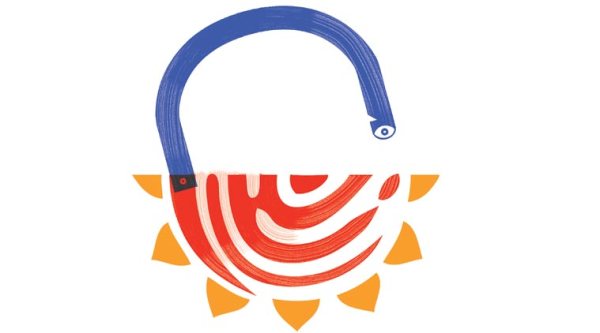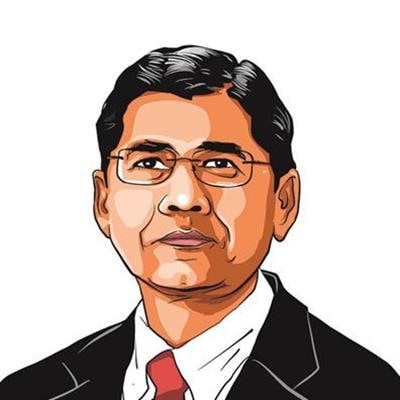A defence without aadhaar
R S Sharma misses the point: All critics ask is to not make the number compulsory
Written by ARVIND P. DATAR | Updated: August 1, 2018 8:43:39 am

All the victims of Aadhaar seek is an option to exit the system if they do not choose to obtain any benefit, subsidy or service. ((Illustration: CR Sasikumar)
The article by Ram Sewak Sharma (‘Why I gave out my number’) eulogisingAadhaar when the Supreme Court judgement is pending was both improper and inappropriate. But the article having been published, a response is necessary. Indeed, the disclosure of his Aadhaar number in a tweet could be in violation of Regulation 6 of the Aadhaar (Sharing of Information) Regulations, 2016, which states that the number of an individual shall not be published, displayed or posted publicly by any person or entity or agency.
Sharma’s ostensible objective is to demonstrate that an Aadhaar number is secure and a hacking here or there is no ground to justify “scaremongering”. He implores the hackers and critics of Aadhaar to let people benefit from its technology and “go about their lives in peace”. This response is not from the hackers or critics but on behalf of millions of existing and potential “victims” of Aadhaar.
The article conveniently sidesteps the manner in which Aadhaar has been steamrolled and made applicable to every walk of life in flagrant violation of the SC’s orders. Despite a clear direction that Aadhaar could be insisted upon only for selected services, and an assurance from the government that it was voluntary, it is today impossible to live in India without the Aadhaar number. It is also pertinent to note that non-Aadhaar holders are forced to file writ petitions in high courts with a hope to get some interim relief from quoting Aadhaar in virtually every form/application.
First, if Aadhaar is indeed voluntary, and is made mandatory only for those residents who wish to avail of subsidies, benefits and services paid from the Consolidated Fund of India, then why is it being made mandatory for 48 per cent of Indians who do not avail of any subsidy or service? Is there a hidden agenda to collect and process huge amounts of data? Second, if an 80-year-old pensioner has received pension for 20 years on the basis of his pension card, why should his pension for the rest of his life be paid only on production of the Aadhaar card? Why should Aadhaar obliterate all other forms of identification that have been successfully used for decades?
Third, it is claimed that the “finest brains” have developed the Aadhaar system to deliver. Can these brilliant minds explain as to why every bank account, provident fund account, insurance policy, mutual fund be linked to the Aadhaar number? And what justifies the blocking of these accounts, paralysing the day-to-day life of Indians who have chosen not to get the Aadhaar number? Sharma talks of digital vulnerabilities but is unconcerned about the enormous vulnerabilities many Indians have faced in the recent past. In fact, a large number of Aadhaar holders are unable to get their subsidies simply because their thumb impressions do not match. Fourth, the article claims without any data, that the adoption of Aadhaar has affected those indulging in tax evasion and benami properties. This is the most ridiculous claim. Black money and tax evasion are deep-rooted and, whatever else the merits of the Aadhaar system, it will not make the slightest dent to these evils. Sharma forgets that black money is the oxygen of Indian politicals and it is significant to note that the only financial instrument given without an Aadhaar number is the electoral bond.
Fifth, it is ironic that Sharma points out that it is “neither required nor desirable to provide a copy of the Aadhaar number to various service providers”. He forgets that no Indian can get a telephone connection, an admission for his/her child even in a private school, or cremate his deceased relative without the Aadhaar card. Shockingly, one cannot enter the Tirupati temple or the Shree Dakshineswar temple at Vadodara without an Aadhaar card. Finally, an essential feature of democratic society is the right of choice. In 1974, the US made the social security number voluntary after realising the dangers of making it compulsory for every activity. All the victims of Aadhaar seek is an option to exit the system if they do not choose to obtain any benefit, subsidy or service. All they ask for is the right to live in peace and not be compelled to have their every activity monitored and recorded
Datar is a senior advocate, Supreme Court, and appeared for some of the petitioners in the recent litigation on Aadhaar
For all the latest Opinion News, download Indian Express App
More From ARVIND P. DATAR
- Harming the nationThe deliberate refusal to implement the decisions of the collegium is hurting the judiciary...
- The Indira we must not forgetOn her birth centenary, it is important to remember the dark period of constitutional history she presided over...
- A GST good and simpleThere is work to be done if the landmark reform is not to become a tryst with disaster...

